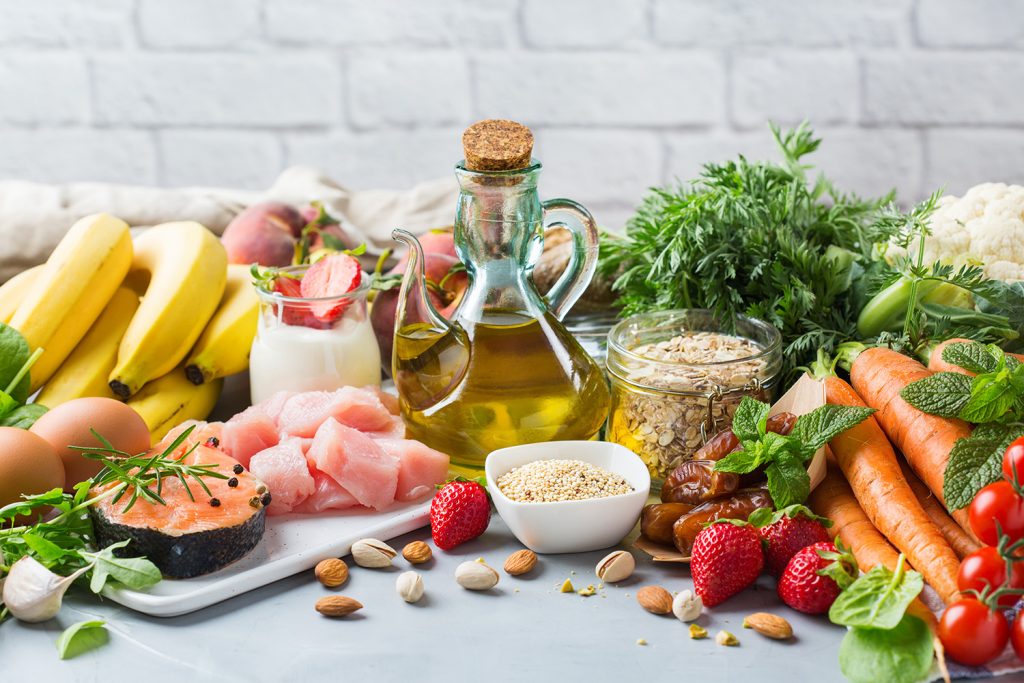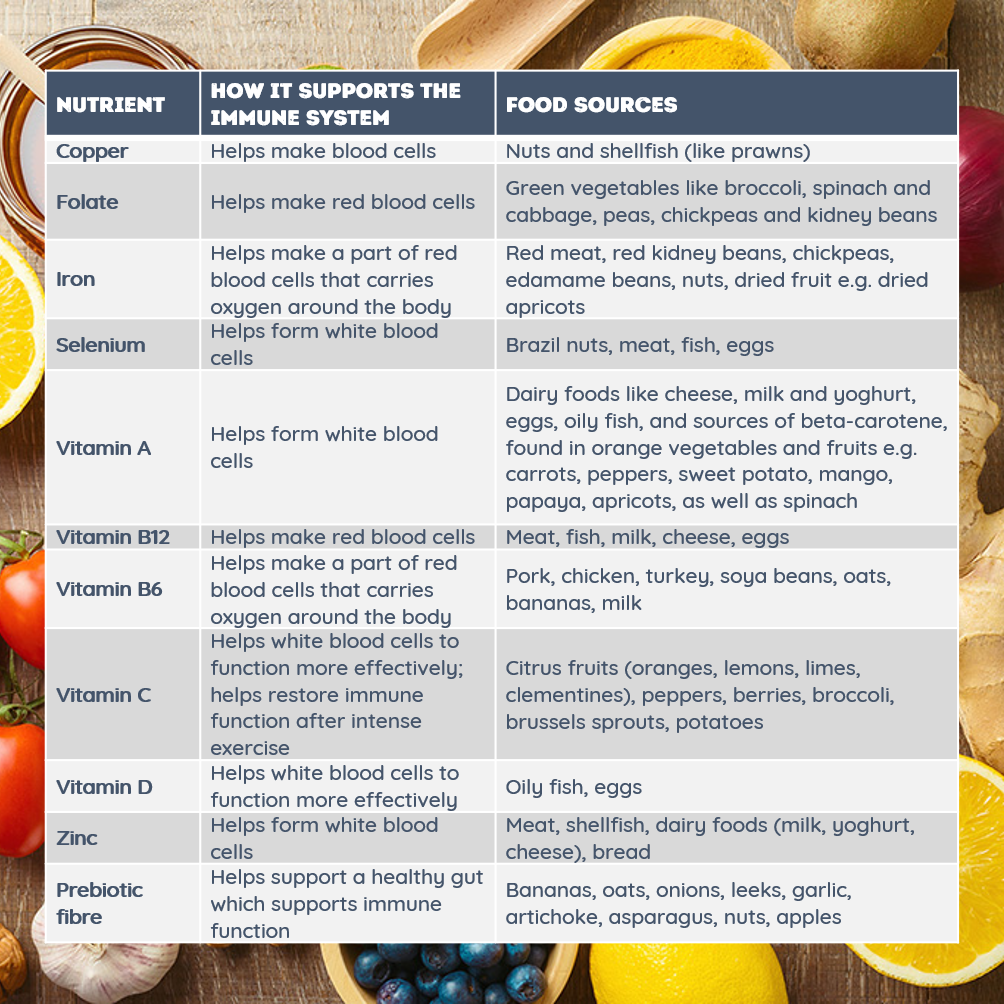
60 second summary:
- The immune system is complicated so you can’t boost its function with a single food or nutrient
- Instead, focus on eating a wide range of vegetables, fruits, pulses, nuts, and seeds along with meat, fish, eggs and dairy products if you eat them
- Those on a restricted diet might like to try a vitamin and mineral supplement
- Remember to exercise gently but regularly
- Make sure you get enough sleep
- Take time out to relax your mind

Pop into any supermarket and you’ll see dozens of products claiming to boost your immune system, whether it’s a vitamin C-rich smoothie or a gut-friendly granola. Now, while some of these claims might be legally permitted (and some might be bending the truth), can you really support your immune system through diet? The answer is yes, you can but it’s not as simple as drinking a ginger shot!
Total diet and lifestyle is important
The immune system is extremely complex and involves many processes, organs and cells of the body. So, there is no one food or nutrient that can help immune function on its own. It might be a familiar but often overlooked message but you really do need to eat a healthy, varied and balanced diet if you want your immune system to function as it should.
And it’s not just what you eat. Taking regular but moderate exercise is important, as is getting sufficient rest and making time to relax and be kind to yourself.
There’s no quick fix
While a healthy gut is an important component of the immune system and while research shows that vitamin C might shorten the duration of a cold, simply eating a “gut-loving” granola or drinking a juice blend alone is not enough to give you immune support.
Instead, steer clear of the often-expensive products making lots of health claims and focus on eating a variety of healthy foods.
The nutrients in the table are important in supporting immune function so try to eat a wide range of foods that contain a natural source of each one.

Those on restricted diets for health, religious or ethical reasons might want to consider supplementing some of these nutrients.
For more information about vitamins and minerals, click here: https://www.nhs.uk/conditions/vitamins-and-minerals/
Claire Baseley – Consultant Nutritionist



